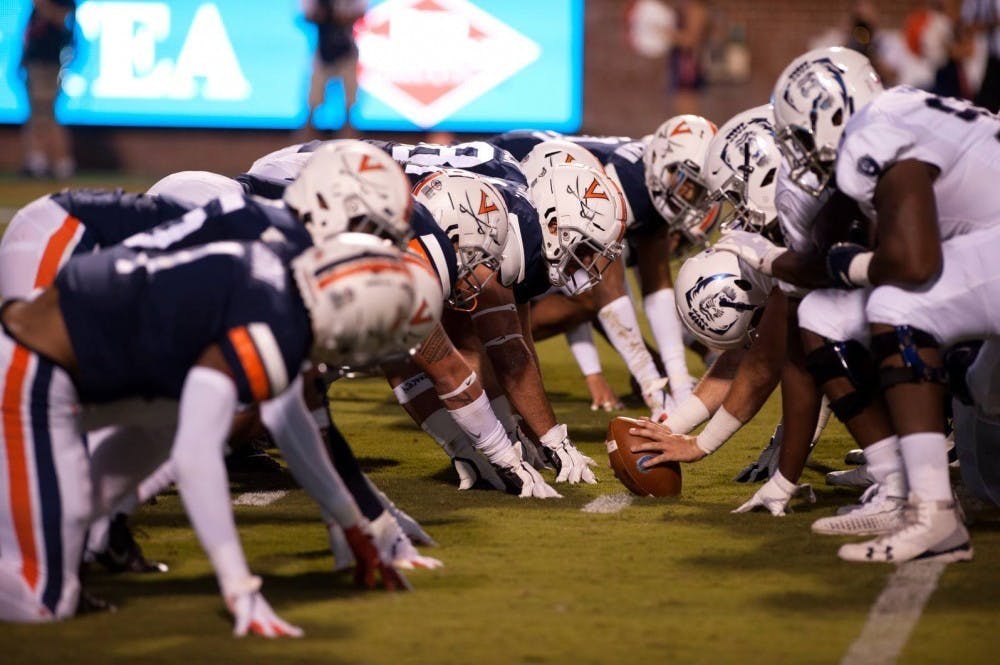California passed the “Fair Pay to Play Act,” on Sept. 30, allowing college athletes in California to be paid for the commercial use of their name, image and likeness — something the NCAA prohibits. The new law is a long-overdue victory for college football and basketball players, who collectively generate billions of dollars for the NCAA and college athletic programs each year without receiving any financial compensation. Virginia should follow California’s lead to help collegiate athletes get financial payment they deserve.
A common argument against paying college athletes is that doing so would undermine the competitive parity of college football and basketball competitions. The claim is that established schools would be able to perpetually outbid smaller universities for top recruits, creating an unfair advantage that would harm the competitive rigor of the NCAA. But law does not allow schools to directly pay their athletes. Rather, it lets athletes to sign endorsement contracts with companies making apparel, products or advertisements, in order to receive a slice of the profits. The amount an athlete can earn will be based not on which school he plays for, but on his ability to increase his endorsement value through excellent on-court performance. As such, competitive parity will not be hurt.
Even so, the NCAA has adamantly opposed any legislation allowing college athletes to earn a share of the financial value they generate. The NCAA has maintained that college athletes should not be paid because they are “amateur student-athletes,” an artful phrase that disguises the enormous level of financial value and corporate involvement in the college sports. While college athletes go unpaid, the NCAA and college athletic departments generate massive revenues. Last year, the NCAA, a non-profit organization, collected $1.1 billion in revenue, mainly from TV and video game contracts. Top college athletic departments raked in over $100 million, primarily from apparel contracts for merchandise and ticket sales. All the while, NCAA stipulations require that none of this money accrues to the athletes.
Many argue that playing college sports itself is a valuable educational opportunity that gives players the chance to prove their athletic ability and to be drafted into professional sports teams. However, according to NCAA Recruiting Facts, only 1.1 percent of college men’s basketball and 1.5 percent of college men’s football athletes move onto professional sports. Players who do not become professional athletes — the vast majority — are in effect dedicating their college careers and risking physical injury to play a sport that generates enormous revenues for all stakeholders except themselves. True, many of these players receive full cost scholarships and in theory are given a free education, but student-athletes spend 40 to 50 hours a week practicing, leaving little time for academics. Most college athletes practice day and night, but emerge from college with no professional future, no substantive education and no compensation.
For those who nonetheless maintain that college athletes should not receive financial payment, it is important to realize the cracks in the current system. In September 2017, the Justice Department arrested 10 people, including basketball coaches, financial advisors and sports agents for secretly channeling payment to college basketball players and their families. By preventing athletes from being paid their market value, the NCAA has created an environment that encourages recruiting via under-the-table compensation. Fair Pay to Play solves this problem. The law gives athletes the opportunity to legitimately earn money through endorsement contracts, which will reduce the desire to enter illegal payment schemes.
Furthermore, the Fair Pay to Play law will make an especially big difference to low-income players. Shabazz Napier, a point guard for the Minnesota Timberwolves, said that when he played college basketball at the University of Connecticut, there were “hungry nights where I’m not able to eat.” Amateur or not, student athletes should not be forced to go to bed hungry when many like Napier generate revenue for their schools.
Legislators in other states, including New York, Florida and Illinois, are proposing similar legislation to California’s. These efforts will give college athletes a well-deserved slice of the financial value generated by their stellar athletic performance and preserve the integrity of college sports. Hopefully the Commonwealth of Virginia can follow in these footsteps and bring compensation to athletes who have time and time again demonstrated their worth.
Richard Song is a Viewpoint Writer for The Cavalier Daily. He may be reached at opinion@cavalierdaily.com.







